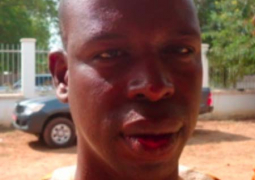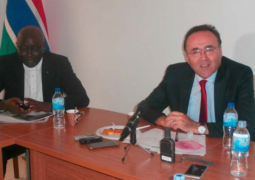This principle informs a determined campaign to build stronger systems for health here in Africa, drawing on the lessons we have learned in our remarkable partnership against HIV, tuberculosis and malaria.
Within living memory, the sheer destruction of AIDS, tuberculosis and malaria seemed unstoppable across our continent. At the turn of the century, AIDS patients clogged our hospitals, with the number of people on antiretroviral medication fewer than 10,000.
A handful of people had insecticide-treated mosquito nets, while programs to detect and treat tuberculosis were patchy. Our resilience was stretched close to breaking point.
Then our continent - and the world - came together. We pooled our resources and knowledge and committed with deep resolve to fight back. Today, we can point to serious impact.
Our ambitious project of blanketing Africa with mosquito nets has helped drive a 60 per cent reduction in annual deaths from the lethal parasite.
For many millions of people living with HIV on our continent, diagnosis is no longer a death sentence. Treatment coverage in Africa south of the Sahara has increased to 37% of the 25 million people who are HIV positive. Between 2005 and 2014 the number of annual AIDS-related deaths fell by 48 per cent.
Tuberculosis deaths are coming down every year, as treatment and diagnosis becomes far more common and accessible across Africa.
Now we need to take the next step. End the epidemics for good and consolidate the gains to our health systems. Impact against HIV, tuberculosis and malaria has left a powerful legacy - greater capacity to treat other illnesses and conditions.
The Global Fund, which has been a key investor in programs to fight the diseases, is also an important funder of programs to build stronger systems for health. These include training and retaining health workers, gathering and storing health information, better facilities and more secure supply chains for drugs and other medical goods.
It is these types of systems that make the difference in a disease outbreak. During the Ebola crisis, countries that could swiftly detect, treat and manage outbreaks were best placed to avoid being ravaged by the virus. Of course, we cannot prevent the emergence of another Ebola-like virus. But we can prepare for it. This is not only the right thing to do, it also makes the best financial sense.
The cost of the recent Ebola response in West Africa was almost three times the annual cost of building health systems to provide the minimum package of health services in the three affected countries.
Our mission to end HIV, tuberculosis and malaria is far from over and we need to reach deep into the communities where the diseases are most concentrated and build sophisticated, bespoke responses.
This is another benefit of building stronger systems for health - we can move beyond a clinical facility to reach those who do not always go to health clinics, such as migrant and mobile workers, men who have sex with men or those too poor to afford any type of health insurance.
Systems for health involving the community will always be the first to identify, report and respond to emergency health threats. This was the case for the HIV epidemic in the 1980s - and it was the case with Ebola.
We are living in a time of extraordinary possibility in pursuit of ambitious but achievable global health goals. We are on the right side of the tipping point for ending AIDS, TB and malaria as epidemics, but our eventual success hangs in the balance of our health systems and capacity to realize universal health care.
Guest Editorial: Global Fund to Fight Aids, Tuberculosis and Malaria (Geneva)
“We are living in a time of extraordinary possibility in pursuit of ambitious but achievable global health goals.”
Dr Mustapha Sidiki Kaloko of AU Commission



